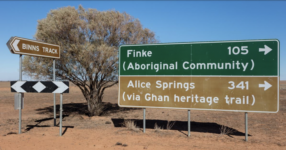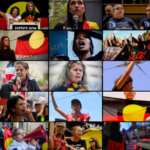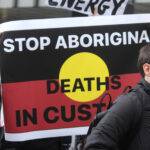Labor to Reintroduce Alcohol Bans in Remote Indigenous Communities

It seems that in recent times, our prime minister has taken a leaf out of his predecessor’s book in terms of social justice issues, sadly adopting similar positions in terms of human rights abuses as well as populist, knee-jerk reactions to situations that require sensible solutions for the longer term.
Perhaps the most recent example of this is Mr Albanese’s proposal to address the issue of crime in the Northern Territory by reintroducing the paternalistic and discriminatory policy of banning alcohol in predominantly Indigenous communities – a policy that has proven to be futile and even counter-productive in the past.
Two wings of the same bird
Mr Albanese’s sudden interest in the Northern Territory has been fueled by publicised rhetoric from Opposition Leader Peter Dutton who, in cahoots with tabloid publishers and radio shock jocks, has been publicly pressuring the Government to ‘take a stand’ by reintroducing the bans.
And rather than stand on his own two feet and highlight the policies proven problems, as well as present the proven and sensical position that taking action on underlying socioeconomic issues such as poverty, lack of access to housing, health and support services, and implementing solutions in that regard, the PM appears to have acquiesced and taken the easy and popular, albeit ineffective, way out.
The man to whom our PM is pandering
Peter Dutton has a long history of dismissing social justice issues.
It’s not long ago, if you remember, that Mr Dutton boycotted the apology to the Stolen Generations.
He was part of a government that turned a blind eye to the (ever increasing) incarceration of indigenous people (particularly children, in appalling conditions, for example at the Don Dale Detention Centre in the NT).
Mr Dutton was also part of a government that did nothing to change the appalling track record of several successive governments in implementing the recommendations from the Royal commission into Indigenous Deaths in Custody.
Alcohol bans
To understand the current issue here – let’s take a step back.
Alcohol bans were originally trialed in 2007, before being introduced in 100 remote Indigenous communities the Northern Territory in 2012, notably by the Labor Government of the time.
Under section 122 of the Commonwealth Constitution – the same constitution which does not recognise Indigenous Australains because it was made at a time when they were considered as fauna, the Federal Government has the power to pass a very broad range of laws relating to territories, namely Australia’s capital and the Northern Territory.
Alcohol bans are ineffective and even counter-productive
The alcohol bans were introduced under the ‘Stronger Future’ banner and remained in force for a decade before being allowed to lapse last year.
The reason the laws were not extended is simple: they were ineffective. While they applied in 100 remote communities, there were around 420 others in which they did not apply. This led to the ‘unforeseen’ situation whereby people would simply ‘stock up’ on alcohol when sales were permitted, bring it in from elsewhere or even move to other places. It also meant that those who were dependent on alcohol but could not afford, or did not want, to move out of the area were criminalised – resulting in their further stigmatisation and exacerbating their degeneration into long term offenders. Dependent persons often resorted to property crimes such as thefts or break and enters to ‘get their fix’, and even violent crimes when forced to go ‘wild turkey’.
By attempting to simply ‘turn off the tap’ rather than provide adequate support services for those who are alcohol dependent, as well as address the myriad of other issues faced by communities who have been largely ‘ignored’ by those in power, the situation has led to greater rather than less crime in many parts of the territory. ‘Turning the tap back on’ was not the solution after 15 years (inclusive of the trials), and neither is now turning it back off.
It is a similar situation in some respects to lockout laws in New South Wales, which saw a surge in crime in areas outside the lockout zones, did little to address the culture of alcohol abuse, destroyed many businesses in the affected areas, and were ultimately relaxed.
In terms of paternalism and discrimination, alcohol abuse is not only a significant problem in remote Indigenous communities in the Northern Territory but also in many other parts of the nation – representing a significant contributing factor in violent crime including assaults, property damage and domestic violence offences. Considering the lack of community consultation regarding the current proposal, it has been seen by many as a colonial-style move reminiscent of ‘protection’ laws of the past.
The bans
In terms of their substance, the bans will mean sales of takeaway alcohol will be prohibited on Monday and Tuesday, with a restricted window of sales between 3pm to 7pm on the remaining days.
The mayor of Alice Springs says that the measures, while well-intentioned, fail to address underlying issues in the region.
Youth crime in the Northern Territory
Statistics suggest that youth crime across the Northern Territory is indeed a significant problem.
According to statistics, property offences by young persons have soared by 60 per cent and domestic violence offences by almost 40 percent in the past 12 months.
But crime, especially youth crime, is more often than not a symptom of other very serious underlying factors – for example, poverty, poor educational outcomes, addiction, etc.
That’s not to say crimes should go unpunished, but it does mean that the drivers of crime need to be better understood if we are to really address the problem.
Many former Prime Ministers, including Malcolm Fraser and Bob Hawke have, post their time in office, spoken publicly of their regret about not doing more to empower indigenous Australians.
It’s an incredibly complex issue – one which will never be solved overnight, or by a simple measure such as an alcohol ban. While the bans might assist temporarily, they’re not the panacea.
The bottom line is this: these are people suffering from generational trauma – they have been disadvantaged and discriminated against from the ‘get go’, that is, the colonisation of Australia.
Repeating mistakes of the past
And the real shame here is that it takes a crisis for the politicians to sit up and take notice. After all, it’s not like these issues haven’t been raised time and time and time again.
Ensuring a better future for all Australians requires thinking beyond the election cycle.
It’s difficult to determine what the future might hold, but it is, arguably, a responsibility of today’s leaders to do their best to position Australia for the future, and not to keep simply repeating the mistakes of the past.
Closing the gap – disappointing results
At the end of last year, results from the national “closing the gap” initiative showed that Australia is failing to meet almost half its targets for improving the lives of Indigenous people, including on the problems of adult incarceration and suicide.
It also showed that indigenous Australians still track well below national averages on most socio-economic measures and suffer disproportionately high rates of suicide, domestic violence and imprisonment.
According ot the annual report, only four of 18 targets are actually on track with conditions worsening or not on track for seven areas including adult incarceration, suicide and children in out-of-home care.
The Northern Territory – although clearly in crisis right now – cannot be isolated from the national picture. Governments need to stop with the band-aid solutions in an aim to look momentarily ‘heroic’ and make a long term investment in Indigenous Australians.
One of those investments must be in diverting youths from a life of crime.
Yes, real change will, realistically, take generations, but until someone instigates real change, we are stuck in a self-perpetuating cycle and we’re not reaching our full potential as a nation made up of a number of races, all of which matter.







